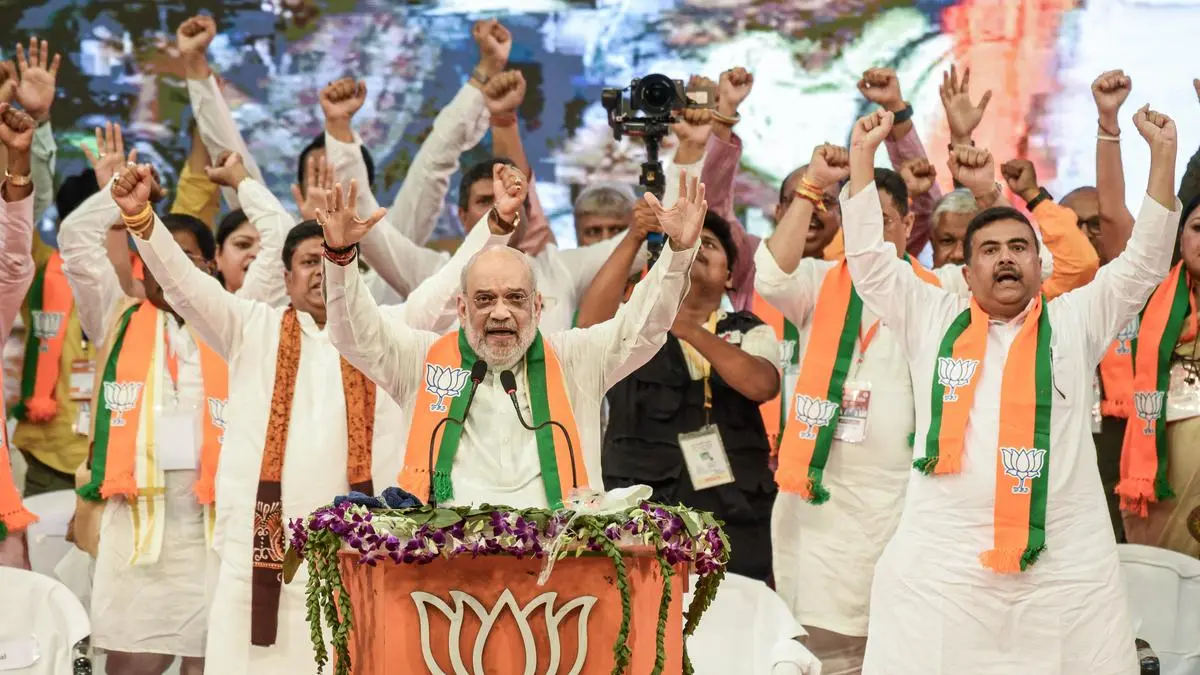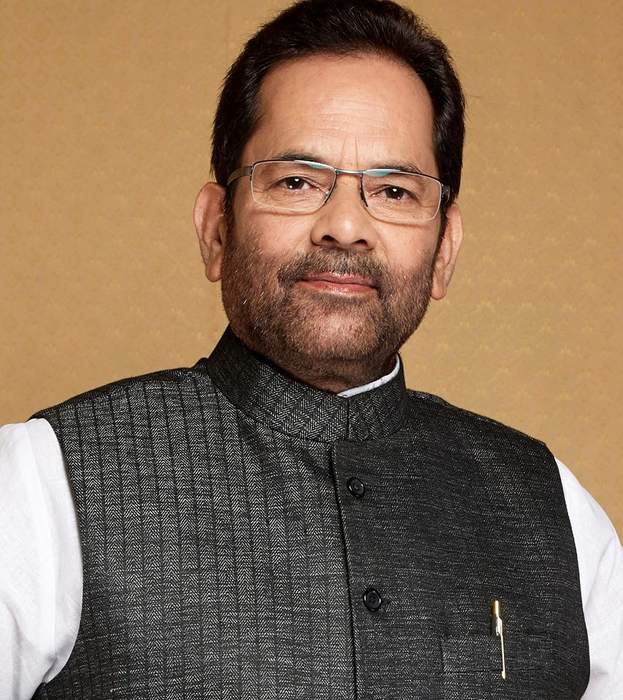Islamabad’s terror tactics are facing fierce backlash as Indian leaders and armed forces unite against Pakistan’s destabilizing agenda. Union Minister Mukhtar Abbas Naqvi has slammed “made-in-Islamabad terror toys” for violating Islamic tenets, while praising India’s security forces for dismantling terrorist hubs.
“Indian Muslims categorically reject Pakistan’s nefarious designs,” Naqvi emphasized, highlighting the community’s allegiance to national integrity. The minister’s remarks come amid growing concerns about cross-border terrorism and its impact on regional stability.
Indian armed forces continue their relentless operations against terror networks, with Naqvi lauding their success in damaging “the territory of terrorism.” Meanwhile, calls intensify for a national debate on combating the political misuse of secularism in counter-terrorism efforts.
- Mukhtar Abbas Naqvi alleges Islamabad’s “terror toys” violate Islamic tenets, while Indian Muslims reject Pakistan’s divisive agenda.
- Indian Armed Forces dismantle “territory of terrorism,” with Naqvi praising their decisive strikes against terror hubs in Pakistan.
- Naqvi calls for a national debate on the “political misuse” of secularism, highlighting concerns over ideological exploitation in India.
Islamabad Terror Tactics Exposed: Why Mukhtar Abbas Naqvi Says Indian Muslims Reject Pakistan’s Agenda While Armed Forces Crush Terrorist Hubs?

Why did Mukhtar Abbas Naqvi call Pakistan’s terrorism a “self-destructive demon”?
Senior BJP leader Mukhtar Abbas Naqvi has consistently warned that Pakistan’s state-sponsored terrorism would backfire, calling it a “demon” consuming its creator. His remarks highlight India’s long-standing accusation that Islamabad nurtures cross-border terrorism while facing blowback from these very groups. The recent surge in terror activities within Pakistan validates this assessment, with militant groups increasingly targeting Pakistani security forces.
The architect of terrorism in our neighborhood is becoming its victim – a poetic justice of sorts. This cyclical pattern mirrors historical precedents where extremist elements, once armed for proxy wars, later turned against their benefactors. Operation Sindoor’s success further weakened Pakistan’s terror infrastructure, creating internal destabilization.

How did Indian Muslims respond to Operation Sindoor according to Naqvi?
The BJP leader emphasized that Indian Muslims overwhelmingly supported the military action, rejecting Pakistan’s attempts to communalize the operation. This was symbolized by Colonel Sofia Qureshi’s participation in official briefings, demonstrating Muslim officers’ professional dedication to national security.
However, controversy erupted when certain BJP members attempted to weaponize this narrative for political gains. The party leadership’s silence on Islamophobic remarks by some members created tensions, contradicting the inclusive message projected through Colonel Qureshi’s role.
The paradox of representation
While the armed forces showcase religious harmony through Muslim personnel’s participation, political discourse often undermines this unity. The subsequent debates revealed deeper fault lines about nationalism tests and the expectations placed on minority communities.

What’s the truth behind Pakistan’s claims of shooting down Rafale jets?
Recent revelations exposed a coordinated Chinese disinformation campaign aimed at undermining India’s Rafale fighter jets. Pakistan’s false claims about downing these aircraft were amplified by Chinese diplomatic channels, attempting to damage French-Indian defense cooperation.
CDS General Anil Chauhan categorically dismissed these claims as “absolutely incorrect”. Intelligence assessments suggest this was part of broader efforts to promote Chinese military equipment while eroding trust in Western defense technology among developing nations.
How does Naqvi interpret the relationship between political secularism and national security?
Naqvi has called for a national debate on what he terms the “political misuse” of secularism, arguing that some parties weaponize the concept to undermine decisive actions against terrorism. His contention is that national security decisions shouldn’t be questioned through religious lenses.
This perspective aligns with India’s strategic shift toward emphasizing operational security over political consensus in counterterrorism operations. The debate touches upon fundamental questions about balancing democratic scrutiny with military effectiveness.
What evidence supports Naqvi’s claim about “Made-in-Islamabad terror toys”?
The terminology refers to Pakistan’s alleged manufacturing and export of terrorism, a pattern extensively documented through:
- Intercepted communications between terror handlers
- Captured weapons with Pakistani markings
- Admissions by captured militants about training camps
- Financial trails leading to Pakistani entities
Operation Sindoor reportedly uncovered fresh evidence of this infrastructure, lending credence to Naqvi’s characterization. The sustained dismantling of terror networks in Kashmir validates the armed forces’ counterterrorism approach.
How has China’s role evolved in Pakistan’s terror ecosystem?
Recent intelligence suggests Beijing has transitioned from passive benefactor to active participant in shaping narratives around Pakistan-sponsored terrorism. The Rafale disinformation campaign represents a new front where China assists Pakistan through psychological operations rather than just diplomatic cover.
This collusion manifests in sophisticated ways: providing technical assistance to evade financial sanctions on militant groups, sharing surveillance technology used in suppression of Baloch activists, and jointly developing propaganda strategies to counter Indian narratives globally.

